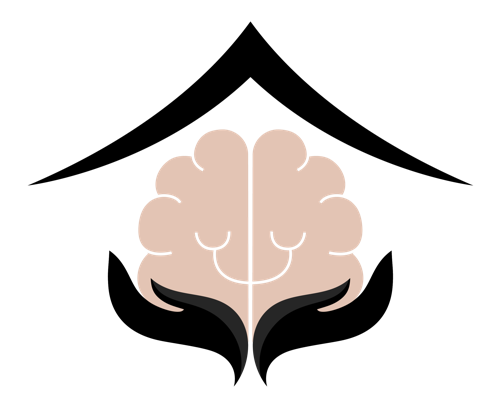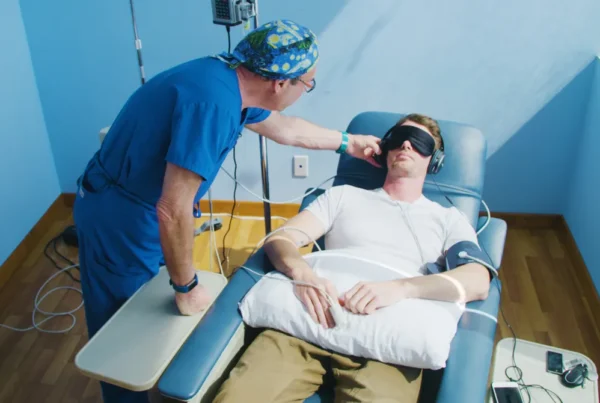In recent years, there has been a remarkable breakthrough in the world of mental health care: the use of ketamine treatment. Ketamine, originally developed as an anesthetic, is showing promise as a revolutionary treatment for a range of mental health conditions, including depression, anxiety, and PTSD. With its fast-acting and potentially long-lasting effects, ketamine treatment offers hope for individuals who have struggled to find relief with traditional therapies. In this article, we will explore ketamine treatment and its potential to transform mental health care.
The Science Behind Ketamine Therapy
Ketamine therapy is not just a hopeful concept; it is based on solid scientific evidence. Ketamine works by blocking the NMDA receptors in the brain, which are involve in the regulation of mood and emotions. By doing so, it stimulates the release of glutamate, a neurotransmitter that is essential for neural communication.
Additionally, ketamine also activates the mTOR pathway, which plays a crucial role in promoting the growth and restoration of brain cells. This neuroplasticity is believe to be one of the key mechanisms behind the long-lasting effects of ketamine treatment.
Numerous studies have demonstrated the efficacy of ketamine in treating treatment-resistant depression and other mental health conditions. The rapid onset of action, often within hours or days compared to weeks for traditional antidepressants, makes ketamine a promising option for those in urgent need of relief.
Applications and Effectiveness of Ketamine in Mental Health Care
In this section, we will explore the broad range of applications and the effectiveness of ketamine treatment in mental health care.
Clinical research has shown that ketamine has demonstrated promising results in treating a variety of mental health conditions. This includes treatment-resistant depression, anxiety disorders, bipolar disorder, post-traumatic stress disorder (PTSD), and obsessive-compulsive disorder (OCD).
One of the most remarkable aspects of treatment is its rapid onset of action. Many patients report experiencing relief from symptoms within hours or days after receiving a ketamine infusion. This immediate response can be life-changing for individuals who have been suffering from chronic and debilitating mental health conditions.
Furthermore, ketamine treatment has been found to be effective in instances where other therapies have failed. This is particularly promising for those with treatment-resistant depression, who often struggle to find relief with conventional treatments.
In the following sections, we will delve into the specific applications of treatment for various mental health conditions and explore the potential benefits it offers for patients.
The Growing Popularity of Ketamine Treatment
As the potential of ketamine treatment in mental health care continues to gain recognition, its popularity among patients and healthcare professionals alike is on the rise. The remarkable results and rapid onset of action that ketamine offers have captivated the attention of those seeking alternative, effective solutions for their mental health conditions.
One of the primary reasons behind the growing popularity of treatment of ketamine is its ability to provide relief when other therapies have failed. Many individuals with treatment-resistant depression or anxiety disorders have been able to find hope and improve their quality of life through ketamine treatment. This breakthrough has sparked interest and enthusiasm within the medical community, leading to an increase in clinical trials and research on ketamine’s efficacy.
Additionally, the accessibility and convenience of ketamine treatment contribute to its popularity. Ketamine infusions can be administered in outpatient settings, allowing patients to receive their treatment without the need for lengthy hospital stays or extend recovery periods.
Finding a Ketamine Treatment Provider
Finding a reputable and qualified ketamine treatment provider is crucial to ensure the best possible outcomes and safety for patients. As the demand for ketamine treatment grows, it is important to be cautious and ensure that you are receiving treatment from a licensed and experienced professional.
When looking for a treatment provider, there are several key factors to consider. Firstly, it is essential to find a provider who specializes in ketamine treatment and has a thorough understanding of the administration process and its potential side effects. A provider with experience in psychiatry or anesthesiology is often a good choice, as they have the necessary expertise to assess and monitor patients during the treatment.
Another important aspect to look for is the facility where the treatment is administered. The facility should meet the necessary safety and hygiene standards and have the appropriate equipment to deliver ketamine infusions safely.
Moreover, it is recommended to seek referrals and read reviews from other patients who have undergone ketamine treatment with the provider you are considering. This can provide valuable insights into the provider’s expertise, bedside manner, and overall patient satisfaction.
What to Expect During a Ketamine Treatment Session
During a ketamine treatment session, it is important to know what to expect to help make the experience as comfortable as possible. Before the session begins, your ketamine treatment provider will conduct an evaluation process to determine if you are a suitable candidate for the treatment. This evaluation may involve a comprehensive psychiatric assessment and a review of your medical history.
Once you are clear for treatment, you will have an initial consultation with your provider to discuss your goals and expectations. They will explain the treatment process, potential side effects, and answer any questions you may have. It is essential to be open and honest with your provider about your medical history and any medications you are currently taking.
During the treatment session, you will be comfortably seated or lying down in a controlled, cozy environment. The ketamine will be administered intravenously, and you will be closely monitored by trained medical professionals throughout the session. The duration of the session may vary, but typically it lasts around 40 minutes to an hour.
It is normal to experience some side effects during the session, such as dissociation or mild hallucinations. However, these effects are generally temporary and subside shortly after the infusion is complete. Your provider will be there to support you and ensure your safety and well-being.
Potential Side Effects and Risks of Ketamine Therapy
While ketamine therapy holds great promise for revolutionizing mental health care, it is important to be aware of the potential side effects and risks associate with this treatment. Like any medical intervention, ketamine therapy carries certain considerations that should be taken into account.
One common side effect experienced during ketamine therapy is nausea or vomiting. However, these effects can usually be manage with medications or adjustments in dosage. Additionally, some individuals may experience an increase in blood pressure or heart rate during the treatment session.
In rare cases, ketamine therapy has been associated with a condition called “emergence phenomena” which includes confusion, agitation, or hallucinations that can persist after the session is over. However, these occurrences are extremely rare and can often be treat with additional medications.
It is important to note that ketamine therapy is not suitable for everyone. Individuals with certain medical conditions, such as uncontrol high blood pressure or a history of substance abuse, may not be eligible for this treatment. It is crucial to undergo a thorough evaluation with a qualify healthcare provider to determine if ketamine therapy is a safe and appropriate option for you.
Cost and Insurance Coverage for Ketamine Treatment
Cost and insurance coverage are important considerations when exploring ketamine treatment as a viable option for mental health care. While the cost of ketamine therapy can vary depending on several factors, such as the location of the clinic and the number of treatment sessions required, it is generally an investment worth considering.
It is important to note that ketamine therapy is a specialized treatment that is often provided by clinics specifically trained in administering this type of therapy. As a result, the cost of ketamine treatment can be higher than traditional forms of mental health care. However, when considering the potential benefits and transformative effects that ketamine therapy can offer, many individuals find the investment to be well worth it.
When it comes to insurance coverage, it is worth checking with your insurance provider to determine if they cover ketamine therapy. While not all insurance providers cover this type of treatment, the landscape is changing, and more insurers are recognizing the value and efficacy of ketamine therapy. It is important to have a conversation with your healthcare provider and insurance company to understand your coverage options and any potential out-of-pocket expenses.
The Future of Ketamine Treatment in Mental Health Care
The future of ketamine treatment in mental health care is incredibly promising. As more research is conduct and more success stories emerge, the medical community is beginning to recognize the true potential of ketamine therapy. Some experts believe that ketamine may revolutionize the way we approach mental health treatments.
Furthermore, ongoing research is exploring the use of ketamine for a variety of mental health disorders beyond depression, such as anxiety, post-traumatic stress disorder (PTSD), and even addiction. Preliminary studies have shown promising results, and ketamine will likely continue to play a significant role in the treatment of these conditions in the future.
As the demand for ketamine therapy continues to grow, we expect more clinics to emerge. This increased availability will not only make ketamine therapy more accessible, but it may also contribute to a potential decrease in the cost of treatment.
The future of ketamine treatment in mental health care is bright. With its rapid effectiveness, ability to treat a range of disorders, and the evolving landscape of insurance coverage, ketamine has the potential to transform the way we approach mental health treatments. As more success stories and scientific evidence emerge, it is clear that ketamine therapy is a revolutionary breakthrough in mental health care.
Conclusion: Is Ketamine Treatment Right for You?
In conclusion, the promise of ketamine treatment in mental health care cannot be overstated. With its rapid effectiveness, ability to treat a range of disorders, and the evolving landscape of insurance coverage, ketamine has the potential to transform the way we approach mental health treatments. However, it is important to remember that every individual is unique, and what works for one person may not work for another.
If you are considering ketamine treatment, it is crucial to consult with a qualified healthcare professional who can assess your specific needs and determine whether this treatment is right for you. They will consider factors such as your medical history, current medications, and the severity of your symptoms.



